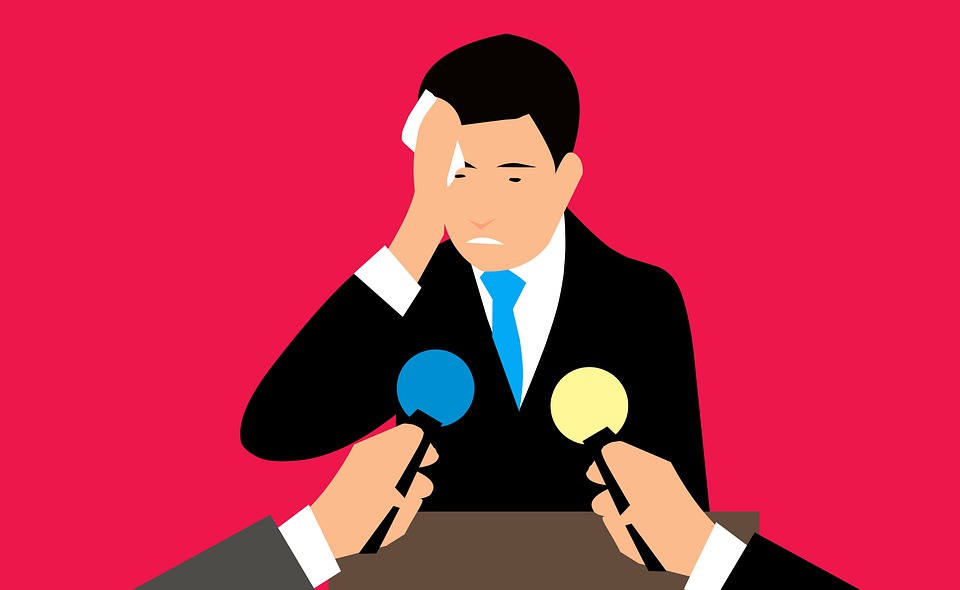Public speaking is a common fear that can be debilitating. Glossophobia, or the fear of public speaking, can have a significant impact on an individual’s personal and professional life. Fortunately, there are several effective treatments available to help individuals overcome their fear of public speaking and improve their confidence in front of an audience. In this blog, we will glossophobia treatment options, including therapy, medication, and self-care strategies. We will also provide tips for finding this treatment approach for you.
Contents
What Is Glossophobia?
 Glossophobia is the fear of public speaking. It is a common phobia affecting millions of people worldwide. Symptoms of glossophobia can include sweating, trembling, and a rapid heartbeat when speaking in public. It can also lead to avoidance of public speaking situations, impacting negatively on personal and professional life. Its exact cause is unknown, but it is thought to be a combination of genetic, environmental, and psychological factors.
Glossophobia is the fear of public speaking. It is a common phobia affecting millions of people worldwide. Symptoms of glossophobia can include sweating, trembling, and a rapid heartbeat when speaking in public. It can also lead to avoidance of public speaking situations, impacting negatively on personal and professional life. Its exact cause is unknown, but it is thought to be a combination of genetic, environmental, and psychological factors.
Is Glossophobia Treatable?
Yes, it is treatable. Glossophobia treatment options, including therapy, medication, and self-care help to overcome the fear of public speaking. Techniques such as exposure therapy, cognitive-behavioral therapy, and relaxation techniques are effective in managing glossophobia. Additionally, practicing public speaking and seeking support from a therapist or support group can also be helpful. With proper treatment and support, individuals with glossophobia can overcome their fear and become more confident public speakers.
Therapy Treatment For Glossophobia
Given below are some therapies used in the treatment of glossophobia:
Cognitive-behavioral therapy
CBT is a common treatment for glossophobia that focuses on changing negative thought patterns and behaviors related to public speaking. In CBT for glossophobia, individuals may work with a therapist to identify their specific fears and negative self-talk related to public speaking. They may then learn strategies for challenging and changing these thoughts, such as reframing negative self-talk or practicing positive self-affirmations. Exposure therapy may also be used, where individuals gradually practice speaking in public while learning coping strategies to manage their anxiety.
Acceptance & commitment therapy
ACT is another therapy that can help treat glossophobia. ACT is focused on helping individuals develop greater acceptance and mindfulness around their thoughts and emotions. With ACT, individuals with glossophobia can learn to recognize and accept their fear of public speaking, without letting it control their behavior. They can then work on developing a more flexible and effective approach to public speaking that aligns with their values and goals.
Mindfulness-based cognitive therapy
MBCT is a treatment that combines mindfulness meditation practices with CBT techniques to help individuals manage difficult emotions and thoughts. In MBCT for glossophobia, individuals may learn mindfulness techniques to help them stay calm and focused during public speaking. They may also learn how to recognize and challenge negative thoughts and beliefs that contribute to their fear of public speaking.
Exposure and response prevention
 ERP is a treatment commonly used for anxiety disorders, including glossophobia. With ERP, individuals gradually expose themselves to situations that trigger their fear of public speaking, while learning coping strategies to manage their anxiety. For example, they may practice giving speeches to small groups of people, then gradually increase the size of the audience over time.
ERP is a treatment commonly used for anxiety disorders, including glossophobia. With ERP, individuals gradually expose themselves to situations that trigger their fear of public speaking, while learning coping strategies to manage their anxiety. For example, they may practice giving speeches to small groups of people, then gradually increase the size of the audience over time.
Interpersonal therapy
IPT is a treatment that focuses on improving interpersonal relationships and communication. With IPT, individuals with glossophobia may work with a therapist to identify any underlying interpersonal issues that may be contributing to their fear of public speaking. For example, they may have difficulty speaking in front of authority figures, or they may struggle to assert themselves in social situations. Through IPT, they can learn to improve their communication skills and build more positive relationships with others, which can help reduce their anxiety around public speaking.
Medication Treatment Options
It’s important to note that medication is not typically the first line of treatment for glossophobia, and it is generally only used in conjunction with other therapies or in severe cases where other treatments have not been effective. Here are some potential medication treatments for glossophobia:
- Beta-blockers: Beta blockers are medications that can help reduce physical symptoms of anxiety. Such as sweating, shaking, and a rapid heartbeat. Beta-blockers are typically taken on an as-needed basis.
- Anti-anxiety medications: Anti-anxiety medications, such as benzodiazepines, are prescribed for severe anxiety related to public speaking. However, these medications can be habit-forming and can have side effects. Hence, they are typically only used for short-term relief of symptoms.
- Antidepressants: Antidepressants are medications that are commonly used to treat anxiety disorders, including glossophobia. They work by regulating levels of neurotransmitters in the brain that are associated with mood and anxiety. Antidepressants may be used in conjunction with other therapies, such as CBT or exposure therapy.
Self-Care Treatment Options
 Self-care can be an important part of managing glossophobia, and there are several strategies individuals can use to help reduce their anxiety and improve their public speaking skills. Here are some self-care treatments for glossophobia:
Self-care can be an important part of managing glossophobia, and there are several strategies individuals can use to help reduce their anxiety and improve their public speaking skills. Here are some self-care treatments for glossophobia:
- Practice relaxation techniques: Relaxation techniques such as deep breathing, progressive muscle relaxation, and visualization can help manage anxiety related to public speaking. Individuals with glossophobia may find it helpful to practice these techniques regularly, both in preparation for speaking engagements and in the moment when they begin to feel anxious.
- Stay physically healthy: Maintaining a healthy diet and exercise routine can help reduce stress and anxiety, which in turn can improve public speaking skills. Additionally, getting enough sleep and staying hydrated can help individuals feel more alert and focused when speaking in public.
- Prepare and practice: Preparation and practice can be key to managing glossophobia. Individuals can reduce their anxiety by thoroughly preparing their presentations or speeches and practicing them in front of a mirror or with a trusted friend or family member. This can help build confidence and reduce the fear of the unknown.
- Challenge negative self-talk: Negative self-talk can be a major contributor to glossophobia. Individuals with glossophobia may benefit from learning to recognize and challenge negative thoughts and beliefs that contribute to their fear of public speaking. For example, they may work with a therapist to identify cognitive distortions and learn to reframe negative thoughts in a more positive light.
- Seek support: Finally, seeking support from friends, family, or a therapist can help manage glossophobia. Speaking openly about fears and anxieties related to public speaking can help individuals feel less alone and more empowered to address their fears. Additionally, therapy can provide a safe space to practice public speaking skills and receive feedback and support.
Ways To Find Glossophobia Treatment
 Here are some tips for finding glossophobia treatment:
Here are some tips for finding glossophobia treatment:
- Search online: One way to find glossophobia treatment is to search online for therapists or treatment centers that specialize in anxiety disorders or public speaking anxiety. You can use search engines to find local providers or use online directories to find providers in your area.
- Ask for referrals: Another way to find glossophobia treatment is to ask your primary care physician or a mental health professional for a referral. They may be able to recommend a therapist or treatment center that specializes in anxiety disorders or public speaking anxiety.
- Ask for recommendations: You can also ask friends, family members, or colleagues for recommendations. If someone you know has sought treatment for glossophobia or another anxiety disorder, they may be able to recommend a therapist or treatment center that was helpful for them.
- Check with your insurance provider: If you have health insurance, you can check with your insurance provider to see what mental health services are covered. They may have a list of in-network providers that specialize in anxiety disorders or public speaking anxiety.
Conclusion
In conclusion, glossophobia can be a challenging condition to manage, but there are several effective treatments available. Cognitive-behavioral therapy, exposure therapy, mindfulness-based therapies, and interpersonal therapy are all effective approaches that can help individuals overcome their fear of public speaking. Additionally, self-care strategies such as relaxation techniques, physical exercise, and positive self-talk can help manage anxiety related to public speaking. If you are struggling with glossophobia, don’t hesitate to seek help from a qualified mental health professional. With the right treatment and support, it is possible to overcome this condition and improve your public speaking skills.
For more information, please contact MantraCare. Glossophobia is a serious behavior that can cause physical, emotional, or psychological harm to a person. If you have any queries regarding Online Counseling experienced therapists at MantraCare can help: Book a trial Online therapy session.


